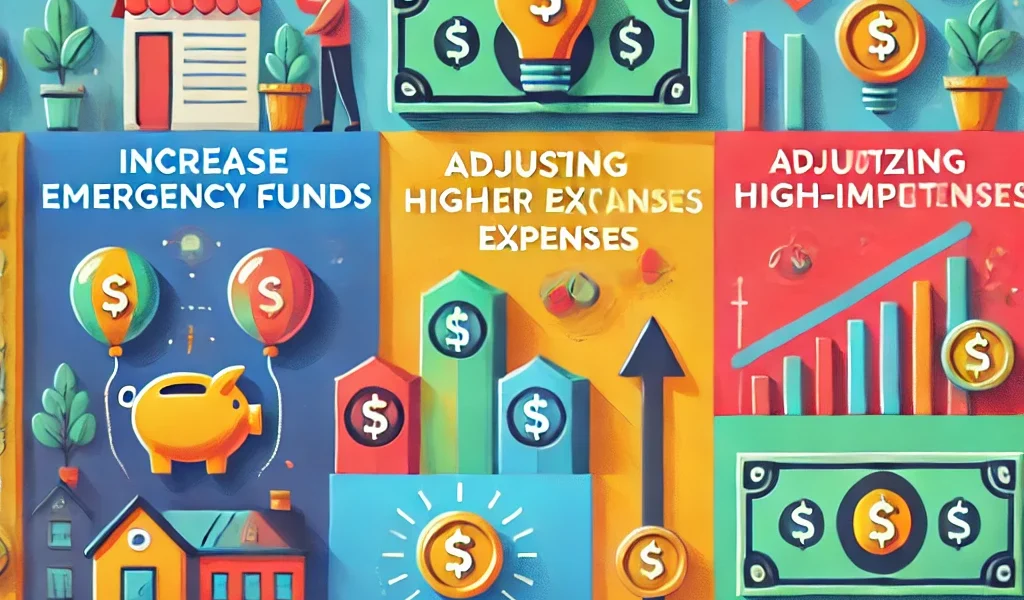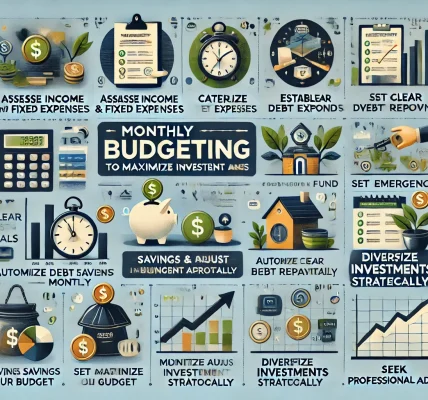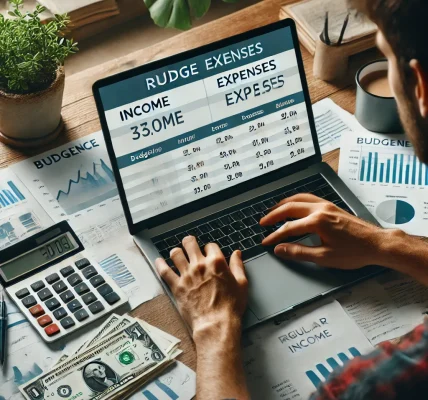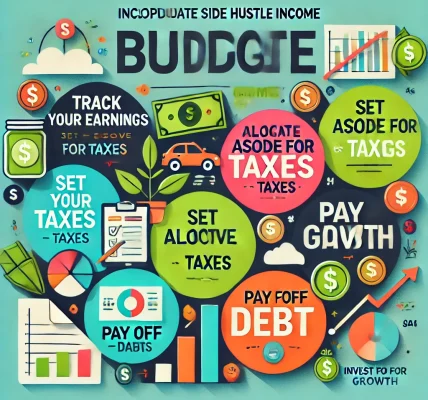📚 Introduction:
Inflation can silently erode the purchasing power of your money, making it harder to meet your financial goals over time. As prices rise, your budget may no longer cover the same expenses, and without proper adjustments, your financial stability can be at risk. Whether you’re managing household expenses or planning long-term investments, budgeting for inflation is essential to safeguard your finances.
In this guide, we’ll explore practical strategies to adjust your budget, protect your savings, and ensure that rising costs don’t derail your financial plans.
🎯 Why is Budgeting for Inflation Important?
- Preserve Purchasing Power:
Inflation reduces the value of money, meaning that ₹100 today will buy less in the future. Budgeting helps you maintain purchasing power by adjusting for rising costs. - Protect Savings and Investments:
Unchecked inflation can erode the real value of your savings and investment returns. Strategic adjustments help secure long-term wealth. - Avoid Lifestyle Creep:
Without a plan, increased expenses may lead to lifestyle inflation, making it harder to maintain financial discipline.
📊 Understanding the Impact of Inflation on Your Budget
Inflation affects various aspects of your budget, including:
✅ Essentials:
- Food, utilities, and fuel prices tend to increase with inflation.
✅ Housing and Rent:
- Property values and rental prices typically rise over time, impacting housing budgets.
✅ Healthcare Costs:
- Medical expenses often outpace overall inflation, requiring additional financial preparation.
✅ Savings and Investments:
- Inflation diminishes the future value of money, impacting the real returns on your investments.
📈 Step-by-Step Guide to Budgeting for Inflation
📝 Step 1: Review Your Current Budget
Start by analyzing your current budget to identify areas affected by inflation.
- Categorize expenses into essentials, discretionary spending, and savings.
- Look for patterns where costs have increased over the past 6-12 months.
✅ Pro Tip:
Use budgeting apps like YNAB or Mint to automate this process and get a clear overview of your spending.
📝 Step 2: Adjust for Higher Essentials Costs
Inflation primarily affects essential expenses like groceries, fuel, and utilities.
- Increase your budget for essentials by 5-10% annually to account for rising prices.
- Identify items where you can switch to cost-effective alternatives without compromising quality.
Example:
If your monthly grocery budget is ₹10,000, increase it by 8% to account for inflation: ₹10,000×1.08=₹10,800₹10,000 \times 1.08 = ₹10,800₹10,000×1.08=₹10,800
📝 Step 3: Prioritize High-Impact Categories
Inflation doesn’t affect all categories equally. Focus on adjusting high-impact areas:
- Housing and Rent: Negotiate lease terms or consider refinancing to secure lower interest rates.
- Transportation: Plan for rising fuel costs and consider carpooling or public transport as alternatives.
- Healthcare: Allocate additional funds to health insurance and emergency medical expenses.
📝 Step 4: Build an Inflation-Proof Emergency Fund
Since inflation increases the cost of living, your emergency fund should also grow accordingly.
- Aim to build an emergency fund that covers 6-12 months of adjusted expenses.
- Consider moving your fund to a high-yield savings account (HYSA) to earn higher interest and offset inflation.
✅ Pro Tip:
Set automatic monthly contributions to your emergency fund to stay on track.
📝 Step 5: Increase Contributions to Investment Accounts
Inflation erodes the real returns on your investments. Combat this by:
- Increasing your contributions to retirement accounts like EPF, PPF, or NPS.
- Diversifying your investment portfolio with assets that outperform inflation, such as stocks, real estate, and gold.
✅ Recommended Strategy:
- Allocate at least 10-15% of your income toward investments that generate inflation-beating returns.
📝 Step 6: Review and Adjust Discretionary Spending
To compensate for rising costs in essential categories, consider cutting back on discretionary spending.
- Reduce spending on dining out, entertainment, and subscriptions.
- Identify areas where you can substitute or eliminate non-essential expenses.
✅ Pro Tip:
Follow the 50/30/20 Rule to ensure that essentials, wants, and savings are balanced effectively.
📝 Step 7: Explore Inflation-Resilient Investments
Protect your portfolio by investing in assets that historically perform well during inflation:
- Real Estate: Property values often appreciate with inflation.
- Stocks and Equities: Companies can raise prices, increasing profits and protecting against inflation.
- Commodities (Gold, Silver): Precious metals act as a hedge during inflationary periods.
✅ Pro Tip:
Consider inflation-linked bonds (ILBs) that adjust returns in line with inflation.
💡 Pro Strategies to Manage Inflation Without Overspending
🎯 1. Opt for Fixed-Rate Loans and Mortgages
Lock in low-interest rates on loans and mortgages to avoid rising borrowing costs.
🎯 2. Negotiate and Shop Around
Compare providers and negotiate better rates on utilities, insurance, and subscription services.
🎯 3. Adjust Subscription Services
Evaluate and eliminate unnecessary subscription services that add to monthly expenses.
🎯 4. Increase Income Through Side Hustles
Boost income through freelancing, consulting, or monetizing hobbies to stay ahead of inflation.
🚨 Common Mistakes to Avoid When Budgeting for Inflation
- Ignoring Small Increases:
Even minor price increases can accumulate and disrupt your budget. - Failing to Adjust Savings Targets:
Inflation reduces the future value of savings, requiring higher contribution rates. - Not Reviewing Budget Regularly:
Inflation rates can change annually, making regular budget reviews essential.
📈 How to Track and Monitor Inflation Impact
✅ Key Metrics to Watch:
- Annual inflation rate (CPI Index).
- Changes in housing and utility costs.
- Fluctuations in healthcare and education expenses.
✅ Best Tools:
- Reserve Bank of India (RBI) Reports for updated inflation data.
- Budgeting apps like YNAB, PocketGuard, or Mint to track spending and adjust accordingly.
🎉 Conclusion: Protect Your Finances from Inflation
Budgeting for inflation is essential to maintain your financial stability in the face of rising costs. By regularly reviewing your expenses, increasing contributions to savings and investments, and focusing on inflation-proof assets, you can protect your purchasing power and secure a brighter financial future. Make necessary adjustments, stay disciplined, and your budget will remain resilient regardless of economic changes.




